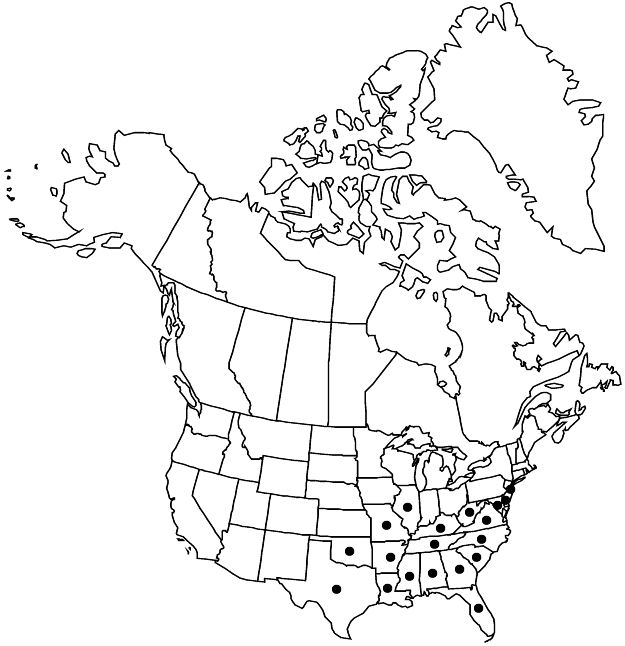Hypericum hypericoides subsp. hypericoides
Synonyms: Ascyrum crux-andreae var. angustifolium Nuttall A. linifolium Spach A. michauxii Spach A. montanum Rafinesque A. oblongifolium Spach A. plumieri Bertoloni
Treatment appears in FNA Volume 6. Treatment on page 87.
Revision as of 10:15, 30 July 2020 by imported>Volume Importer
Plants erect, usually unbranched from base and freely branched well above ground level, 3–15 dm. Leaf-blades usually narrowly elliptic to narrowly oblong, 7–25 × 1–8.5 mm, broadest near middle. Inflorescences: branching dichasial/lateral to pseudodichotomous. 2n = 18.
Phenology: Flowering summer–fall (Jun–Oct).
Habitat: Dry, open, sandy woods to moist, shady, rich woods and thickets
Elevation: 0–1000 m
Distribution

Ala., Ark., Del., Fla., Ga., Ill., Ky., La., Md., Miss., Mo., N.J., N.C., Okla., S.C., Tenn., Tex., Va., W.Va.
Discussion
Subspecies hypericoides is probably extirpated in Illinois.
Selected References
None.
Lower Taxa
None.
... more about "Hypericum hypericoides subsp. hypericoides"
isodiametric +
yellow;orange +
dehiscing +
oblong;ellipsoid +
acute;subapiculate;obtuse +
glandlike +
punctiform +
not articulated +
distinct +
distal +
2-5-valved +
narrowly compressed-ovoid;cylindric-ellipsoid +
straight +
absent +
branching +
stellate +
capsular +
septicidal +
black +
absent +
simple +
branching +
lateral +
lanceolate +
2 cm20 mm <br />0.02 m <br /> (?) +
2-winged +
usually narrowly elliptic;narrowly oblong +
broadest;1mm;8.5mm +
opposite +
like +
subrecurved +
glandular-ciliate +
1;4 +
2-merous +
superior +
anatropous +
1;2 +
various +
erect +
glanduliferous +
contorted +
pale-yellow +
deciduous +
distinct +
bright +
obovate;narrowly oblongelliptic +
Inst. Rei Herb. +
1766 +
not carinate +
persistent +
unequal +
fascicles +
persistent +
40;50 +
fascicles +
absent +
reduced +
minute +
appressed +
spreading;more or less appressed +
2;5 +
elongate +
Hypericum hypericoides subsp. hypericoides +
Hypericum hypericoides +
subspecies +
scalariform +
diffuse +